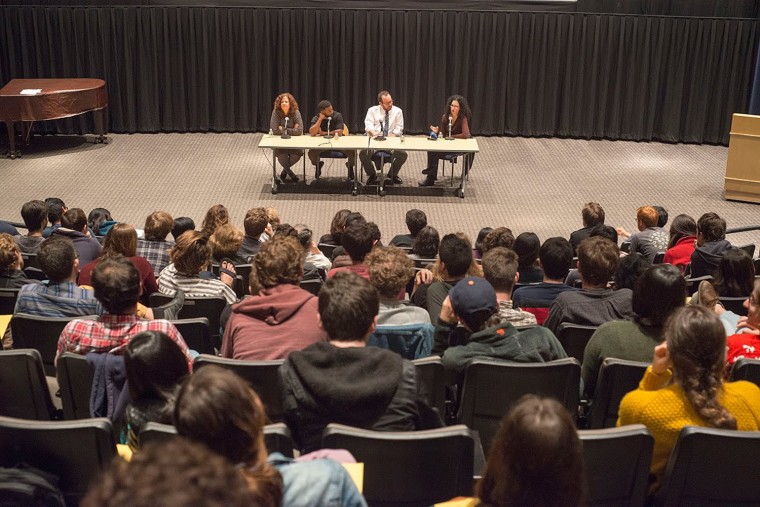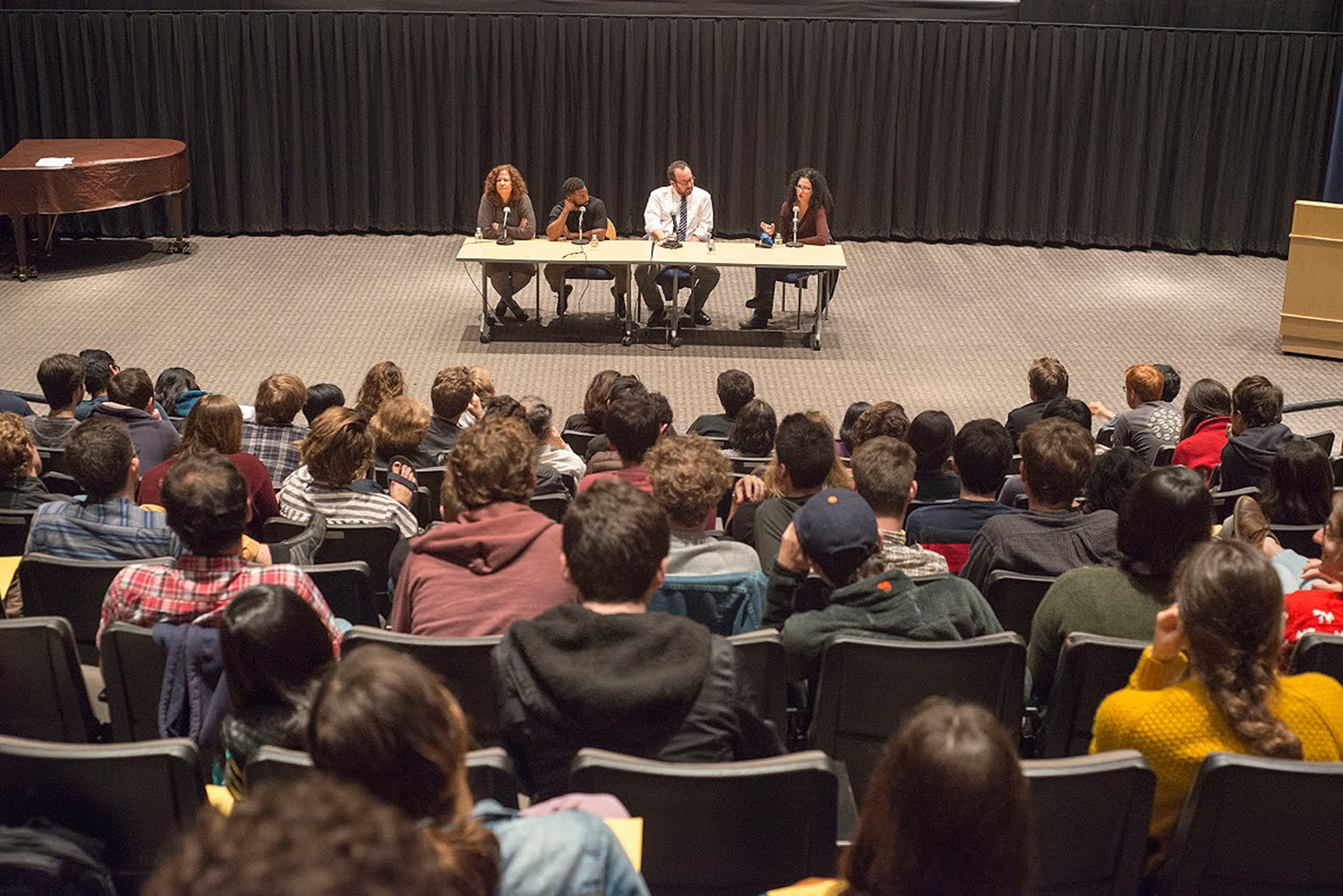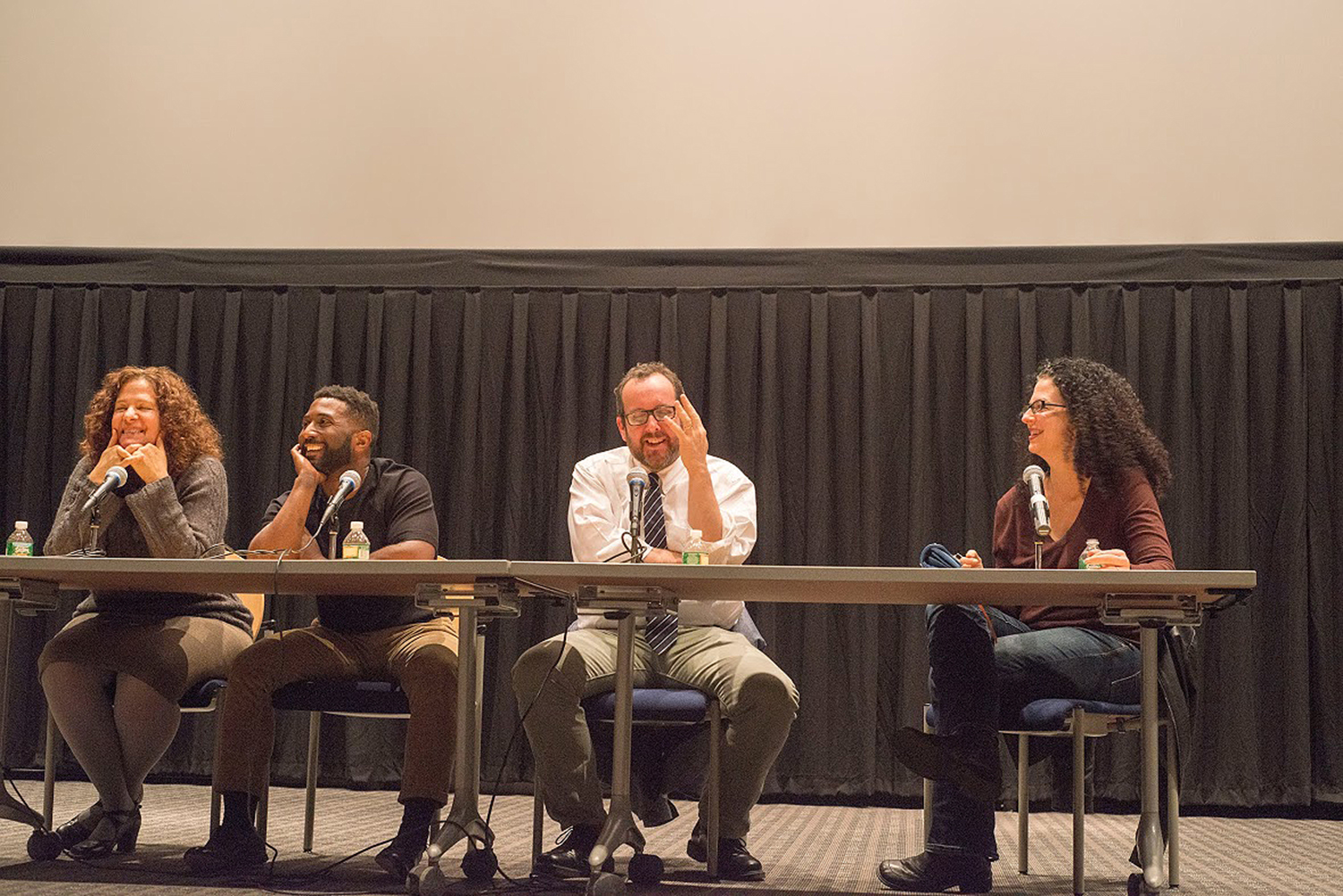A. O. Scott Moderates Talk on Arts Criticism



The highly respected panelists provided an engaging and frank discussion on the current role of art critics in the age of the Internet, Twitter and other social media.
Book critic Laura Miller commented how Salon.com readers are less interested in reading about fiction, how essays on non-fiction attract more readers to Salon, and how she tries to anticipate what topics will generate discussion on the site.
Grantland critic Wesley Morris, who previously worked as a film critic for two San Francisco newspapers and The Boston Globe and was limited writing 800-word reviews, discussed how more rewarding it is to write longer essays (sometimes about 1,600 words) in which he can explore films and related issues in depth. He touched upon transitioning from academic writing to writing for a general audience.
Emily Nussbaum mentioned how fortunate she was to be able to be a television critic for a high profile publication when other news venues have dispensed with arts criticism altogether—but also at a time when television is taken more seriously as an art form. As a writer for The New Yorker, she appreciates having time to write longer essays, usually on television programs of her own choosing, and a schedule that allows her to do a few drafts before a piece is printed.
The critics talked about their usual work weeks, whether they were writing for a particular reader (debatable), if they considered the creators’ feelings when writing negative reviews, and whether personal opinion can be divorced from criticism (probably not).

